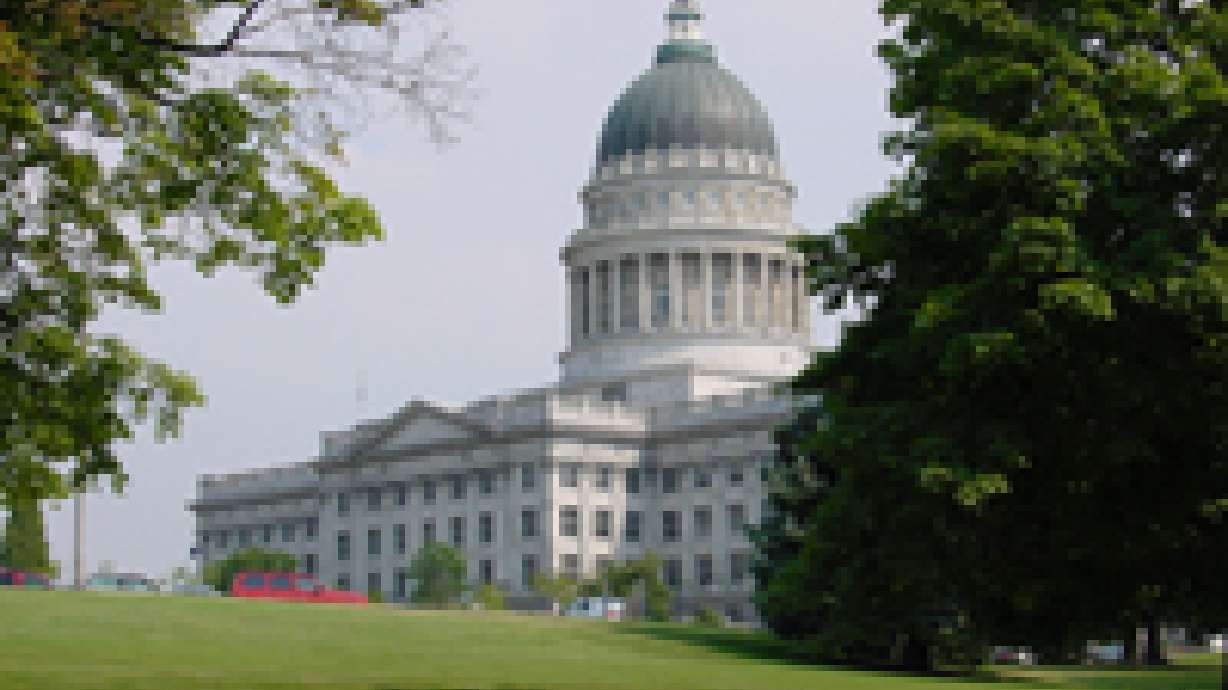Estimated read time: 5-6 minutes
This archived news story is available only for your personal, non-commercial use. Information in the story may be outdated or superseded by additional information. Reading or replaying the story in its archived form does not constitute a republication of the story.
SALT LAKE CITY (AP) -- Steve Erickson is a private citizen who has spent more than a decade working as a public watchdog.
Erickson runs the Citizen's Education Project, which studies and monitors the state, local and federal governments, trying to make sure the best interests of Utah residents are being protected. To do that, he frequently makes use of the state's Government Records Access and Management Act -- or GRAMA -- to mine public documents for information.
Three times in the last two years, Erickson has made significant finds that triggered a flurry of news stories:
-- Utah was part of the so-called MATRIX program, a multistate effort to combine commercially available databases on citizens to fight crime and terrorism. Then-Gov. Mike Leavitt, a Republican, signed up the state for the program after the Sept. 11 terrorist attacks without consulting other state officials.
-- A lack of oversight by state officials on programs for chemical and biological testing, and the subsequent environmental impact of those tests at the military's Dugway Proving Ground, about 80 miles west of Salt Lake City.
-- The failure of the state's radiation control division to conduct due diligence about the exact contents of a shipment of Japanese uranium-bearing rock bound for a disposal at a mill in southern Utah.
Without the access given to citizens under GRAMA, "in all three instances none of that information would have come out," Erickson said.
Now as state lawmakers consider more than a half a dozen bills that would change GRAMA, Erickson fears the public's access to government information could be limited.
"In general, these bills are going to restrict citizens' access to information from their government, and that's not a healthy trend," he said.
The proposed legislation comes after a yearlong task force that studied GRAMA, which has been in place for nearly 14 years and altered in bits and pieces about 70 times.
Rep. Douglas Aagard, R-Kaysville, co-chaired the task force with Sen. David Thomas, R-South Weber. Both say it was time for a comprehensive review of the law, in part because technology advancements have changed public record-keeping and communication, and because identity theft has raised new concerns about privacy.
They say they were guided in the study by GRAMA's two stated rights: that of the public to have access to what government is doing and the right to personal privacy.
"Everything we looked at in the task force was balancing those two rights against each other," Aagard said. "I think what we did was really good for the citizens. Is the language exactly right? Maybe not, but our intent and what we were trying to accomplish is right on."
The language Aagard refers to appears in three pieces of legislation that were endorsed by task force. All three are moving through the Legislature, although all have been amended either in committee or floor debates.
One would keep e-mail exchanges between government officials and their constituents private -- unless one of the parties stated otherwise-- and protects from public scrutiny the flow of information between legislators and staff during the development of a bill. A second bill gives governments the right to refuse a records request if the information sought has already been published in another form.
A third bill changes the appeals process for a denied record, pushing all appeals to the State Records Committee before the district courts, unless the parties agree otherwise in writing.
Another handful of bills, most of which also came from task force discussions, address privacy for those appointed as judges, limit access to information about state employees and make changes to open meetings laws, including requiring taped records of all closed meetings.
Jeff Hunt, an attorney who represents a coalition of Utah newspapers and television stations, says the open meetings bills are the "sunshine" part of the GRAMA discussion, but he has concerns about how other proposals might close off government.
"The public relies upon the media to use open records laws," said Hunt, who has been negotiating for amendments to the bills. "I think you have to ask what the problem is."
"The system is not broken," Erickson said, although he and Hunt both conceded that technology has complicated some information issues. "Clearly there need to be some guidelines, but I don't think the approach these bills are taking is going to solve them."
Erickson fears that protecting e-mail will sanction the use of the delete button -- which the MATRIX investigation showed was common practice for Leavitt -- and erase any public record trail.
"If that's going to be permitted throughout the system, we've got ourselves a huge problem trying to track information on what our government officials are doing," he said.
Thomas and Aagard seem fairly certain in their beliefs that the privacy of citizens should be protected. In a survey of 10,000 of his constituents, Thomas said he found 67 percent of respondents said they preferred the government err on the side of privacy.
Aagard believes any slip in the protection of privacy puts democracy in jeopardy. He said much of his interest in GRAMA was driven by letters of concern from constituents.
"I'm not going to be a (representative) forever and when I leave here, I want to be able to write my rep and know my name isn't going to be in the paper," he said. "To me that communication with the public, that's sacred."
He said he doesn't understand why the media would want to access to constituent communications.
"It's like they don't see the right of privacy or the right to petition the government," he said.
(Copyright 2006 by The Associated Press. All Rights Reserved.)









